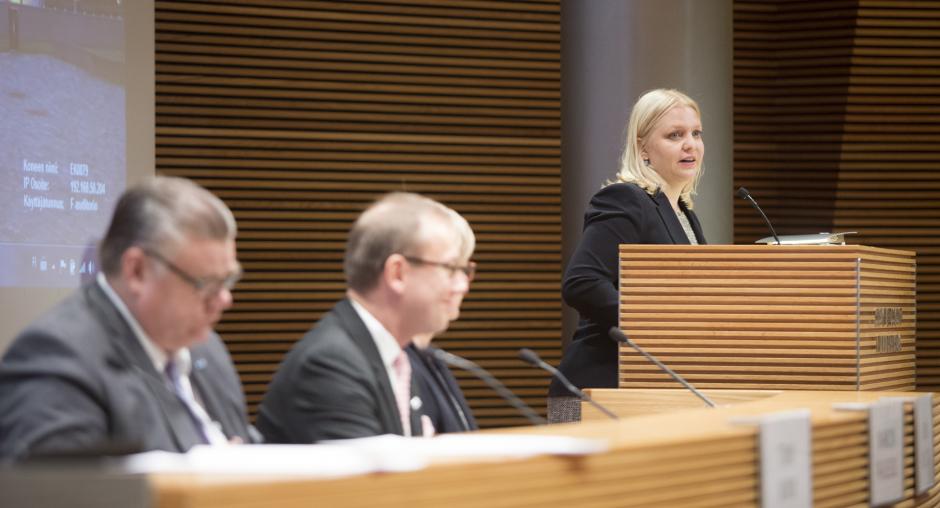Greater participation of persons with disabilities in political and public life in focus at OSCE/ODIHR conference in Helsinki

Ways to ensure equal opportunities for people with disabilities to take part in public life and political affairs were discussed at a conference co-organized in Helsinki on 31 October 2016 by the OSCE Office for Democratic Institutions and Human Rights (ODIHR), Finland’s Ministry for Foreign Affairs and the Finnish Human Rights Centre.
The event gathered more than 100 prominent disability rights experts, academics, parliamentarians, representatives of ombuds institutions and disabled people’s organizations from the OSCE region, as well as members of the Parliamentary Assembly of the Council of Europe, the OSCE Parliamentary Assembly, the EU Fundamental Rights Agency and the UN Committee on the Rights of Persons with Disabilities.
“Democracy cannot flourish with a significant part of the society being excluded from decision-making,” said Tiina Kukkamaa-Bah, Chief of Democratic Governance and Gender Unit at ODIHR. “Persons with disabilities need to have a seat at the table and we all need to step up our efforts to create a political society where diversity is acknowledged and contributions of all persons are equality valued.”
Providing persons with disabilities with the possibility to vote is only the first step in ensuring their participation in political life, said Kalle Könkkolä, Executive Director of the Finnish Threshold Association.
“Polling stations and political information should be accessible – but this is only the beginning,” he said. “It is important to ensure that disabled people actively participate in political life; this is the key challenge that should be addressed by the authorities, political parties and disabled people themselves. Disability should be included in the political agenda and political groups should outline their stand on the issue.”
The event was part of the OSCE/ODIHR project “Our right to participate – Promoting the participation of persons with disabilities in political and public life.”
